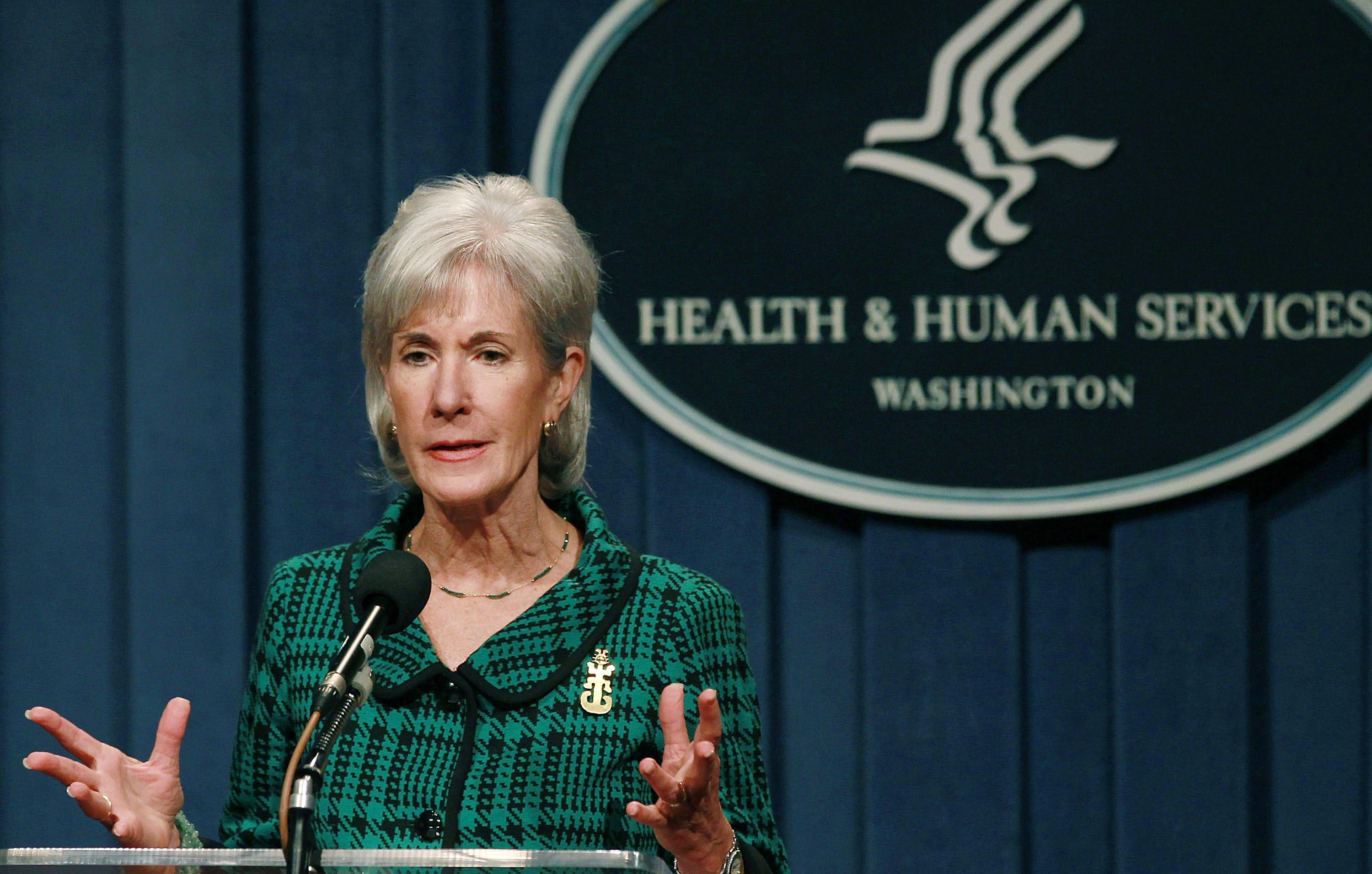The women’s health world has been in an uproar since Health and Human Services Secretary Kathleen Sebelius rejected a recommendation by the FDA on Wednesday to make emergency contraceptives like Plan B available without prescription to teens under the age of 17. According to the New York Times, her reasoning had to do with the extent of the data:
“After careful consideration of the F.D.A. summary review, I have concluded that the data submitted by Teva do not conclusively establish that Plan B One-Step should be made available over the counter for all girls of reproductive age.” She was referring to Teva Pharmaceuticals, the pill’s maker. She noted that 10 percent of 11-year-old girls can bear children, so they needed to be studied as well.
Many have called Sebelius’ decision a political maneuver, a feeling that was strengthened for some when President Obama—who’s no doubt considering the election fallout of controversial issues like this as we approach 2012—endorsed the move. After all, the American Academy of Pediatrics has been wholly supportive of making Plan B and similar brands available to young women over-the counter since 2005, when it released a comprehensive report on the issue (PDF). In the review, the AAP found no legitimate reasons—neither medical nor social—to continue requiring a prescription for the pill. Quite the contrary, they organization argues that “it is estimated that appropriate use of emergency contraception could reduce the number of unintended pregnancies each year by half and thereby similarly reduce the abortion rate.”
But what of Sebelius’ purported concern that 11-year-old girls would incorrectly use the method? It’s true that when skimming through the studies upon which the AAP based its recommendation, the ages of those included are above this age group. But is the statistically small rate at which these girls get pregnant enough of a reason to reject such compelling science? A pediatrician blogging under the pseudonym “Russell Saunders” has written an excellent post addressing this question. Drawing on his experience in adolescent medicine, Saunders points out that “younger adolescent girls were just as likely to use the medication safely and effectively as older adolescent and young adult women,” and moreover, that any question as to the drug’s safety is disingenuous:
Whether or not you think younger adolescents would use the medication right, one thing that is not open to serious question is whether the medication is safe: it is. It is safer than a great many medications that are sold without a prescription, including Tylenol, Benadryl and aspirin. If (as he said when defending the Secretary) the President is worried about selling medications to young girls that may “have an adverse effect,” he should probably start with those. Having dispensed Plan B personally to hundreds of patients, I have never seen a single case of a serious adverse side effect. By way of contrast, I have taken care of at least three cases of near-fatal Tylenol overdose.
So, if we believe Saunders’ assertion that the concern for a “vanishingly small” population of child-bearing 11-year-old girls is a political “canard,” we are left with the question of what’s in this for the Obama administration. Obviously, pretending yet again that young women are nonsexual creatures in need of protection from foul sexual influences is an effective strategy for appeasing one segment of the American public. But denying what appears to be the strongest kind of scientific consensus may do more reputational harm than political good. As Michael Specter put it on the New Yorker blog today:
If you don’t accept the recommendations of your most able and well-trained scientists, if you reject research results that have been endorsed heavily by dispassionate experts, then where do you end up? Once we start rejecting facts for fiction, does it really matter which facts and which fiction?
Sounds a little too familiar for my comfort.
